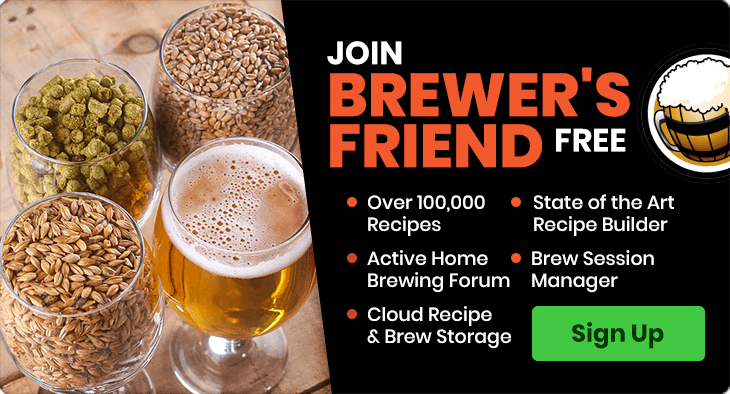The Dark Side of Home Brewing
Wednesday, July 8th, 2009Brewing has a dark side. It has yet to be brought to light by the dozens of books I have read on home brewing. The multitude of people online who I have connected with about brewing have never spoken about it. The brewing industry itself wants us to believe it is a myth. That dark side is alcoholism, or alcohol dependency, and it is a terrible component to drinking. Not everyone is blessed with the ability to moderate their intake. Not everyone is smart enough to treat alcohol responsibly. Every brewer should know what alcoholism and alcohol dependency are, and how dangerous a full blow case can be.
My goal with this article is to simply inform. I want to be clear, I am not saying that brewing beer, going to pubs, and enjoying beer is a negative thing. Alcohol is reported to have positive health benefits, when used in moderation. Drunk driving, loosing one’s spouse, or destroying one’s health are negatives that are involved with alcohol when it is used irresponsibly. Some people have a genetic predisposition to becoming an alcoholic, or a family history of alcohol abuse, which puts them at a higher risk.
Something I was not aware of is alcoholism and alcohol dependency are the same thing.
The word ‘dependency’ sounds so innocent. The dependency leads to a steady progression associated with more and more alcohol intake, and that is what causes all the damage.
For the official medical description see: https://www.mentalhealth.com/dis/p20-sb01.html
Some Warning Signs:
-
If you are developing a tolerance for alcohol, and need to drink more to get the same effect, that is a warning sign. Making up for drinking by exercising, eating healthy, and getting more sleep is only going to feed into increasing tolerance.
-
Inability to cut back is a warning sign. That means it is a habit, and the progression has started.
-
If you find yourself making excuses to justify drinking, that is a warning sign. These may include social drinking, celebratory drinking, drinking to reward oneself, or on the negative side, drinking to cope with stress, physical pain, or to numb negative emotions.
-
The idea that it isn’t alcoholism until it impacts your life in a major way is completely flawed. Even something as simple as a mild headache in the morning, weight gain, or slight depression is a health impact. Consider that increased drinking is the cause. Multiply a mild headache over a month, or an extra few pounds over a year, and now it is a chronic condition. Over time, excess drinking will lead to problems in all aspects of life, especially the ones you care about most.
- Bottom line: If you think you have an alcohol dependency you do, and you need to address it. Private counseling is one very good option. Self moderation is likely not to work. Only 20% of people are able to stop on their own. Beyond that, support from family, friends, and an alcoholics anonymous club should be sought out.
This website has a guide on what constitutes alcoholism, and a short quiz you can take yourself:
https://www.hsc.wvu.edu/som/cmed/alcohol/alcoholism/alcoholism.htm
What is at stake here?
Alcoholism has a progression. It starts with a higher tolerance, which kicks off a cycle of increased intake. At this point attempts to scale back may be unsuccessful. This may continue for a number of months, years or decades. Over the course of that time, long term drinking causes harmful health effects. Its not just the liver that gets hurt. Research indicates the brain chemistry governing emotions of happiness are at stake. Hardened alcoholics actually loose the ability to enjoy themselves unless they have recently had a certain amount of alcohol. This is something alcohol has in common with harder drugs like meth.
Most home brewers are smart, hands on, creative, and self sufficient people. These positive attributes are made possible because of our brains. The thought of loosing that to alcohol is horrifying. There are social impacts as well. Alcoholism effects the alcoholic and everyone around them. The thought of loosing employment, spouse, friends, and faith is also horrifying.
Anyone who has a history of alcoholism or a family history of alcoholism should strongly consider avoiding home brewing as a hobby.
We brewers are often surrounded by alcohol, involved in the production of it, and even its perfection.
Home brewing ultimately leads to having large quantities of high quality beer on hand at a very affordable price. At home you are surrounded by reminders of brewing – the equipment, the bubbling fermentor, the empty bottles, the spreadsheets on your computer’s desktop, the hops outside the house, and the closet or fridge full of beer just waiting to be enjoyed. These reminders can be triggers for cravings. Acting on those cravings repeatedly can lead to higher tolerance, and that is when the progression begins. The progression is dangerous because it can slowly creep higher and higher. There is such a thing as a functional alcoholic, but functioning at what level, and for how much longer?
In the past, I was always surprised to see a craig’s list post of a home brewer selling off their entire kit for a ridiculously low price. My original thought was, once you figure out how to brew beer that is perfect to your own taste, why ever stop? One explanation is they brewed themselves into alcoholism and were forced to choose between booze or life.








